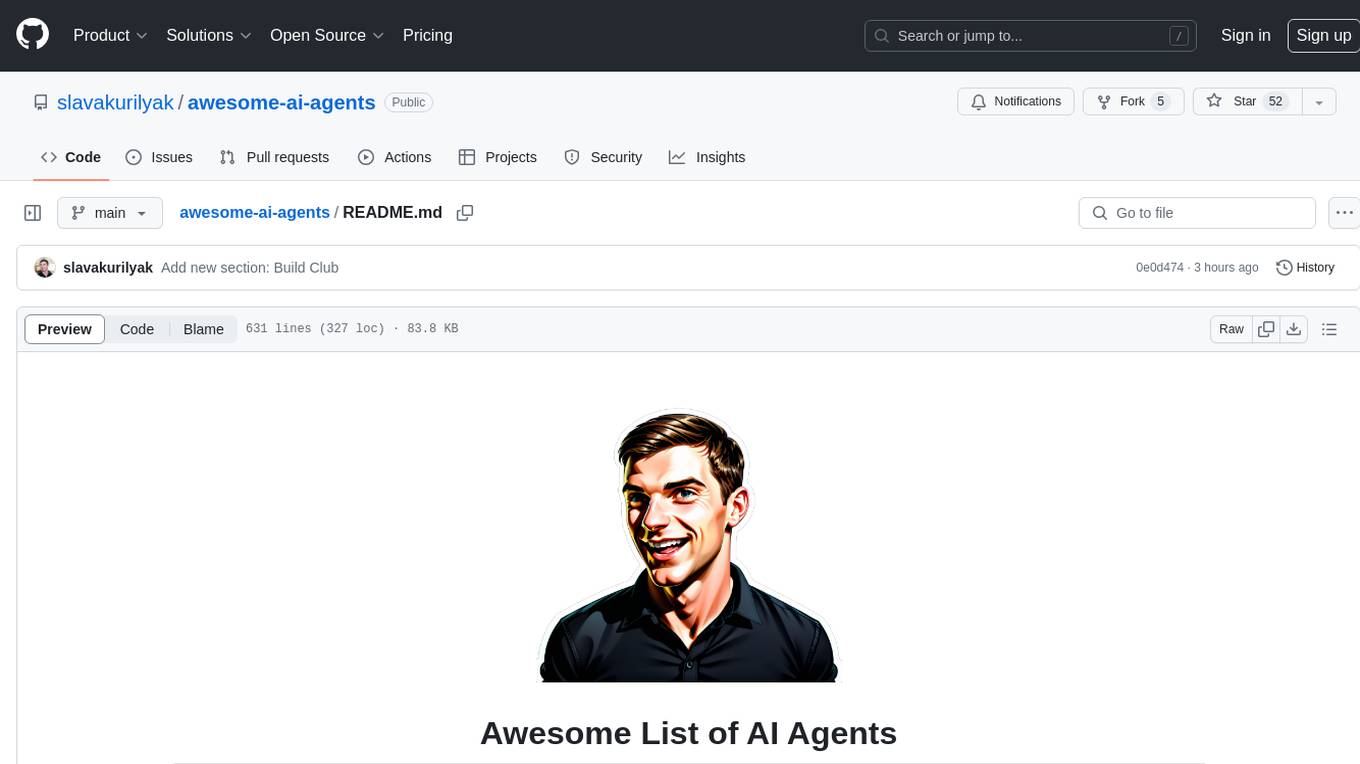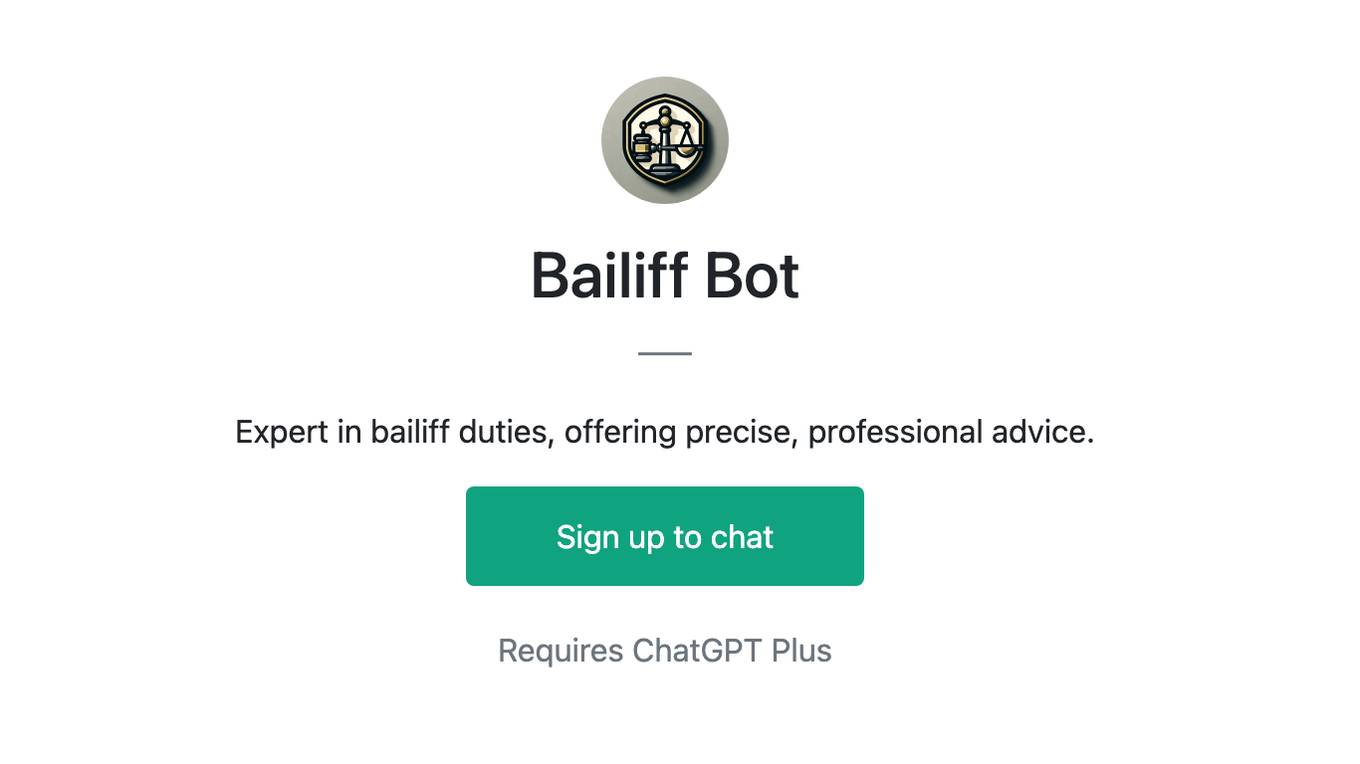Best AI tools for< enforce api contracts >
11 - AI tool Sites

PerfAI
PerfAI is an AI-driven API testing and governance platform that automates every stage of the API lifecycle, from testing and performance to contract and releases. With PerfAI, you can deliver high-quality, bug-free APIs with confidence.

Yokoy
Yokoy is an AI-powered spend management suite that helps midsize companies and global enterprises save money on every dollar spent. It automates accounts payable and expense management tasks, streamlines global data, keeps spend under control, and enforces compliance. Yokoy's API facilitates seamless integrations with enterprise-level systems for end-to-end automation across entities and geographies.
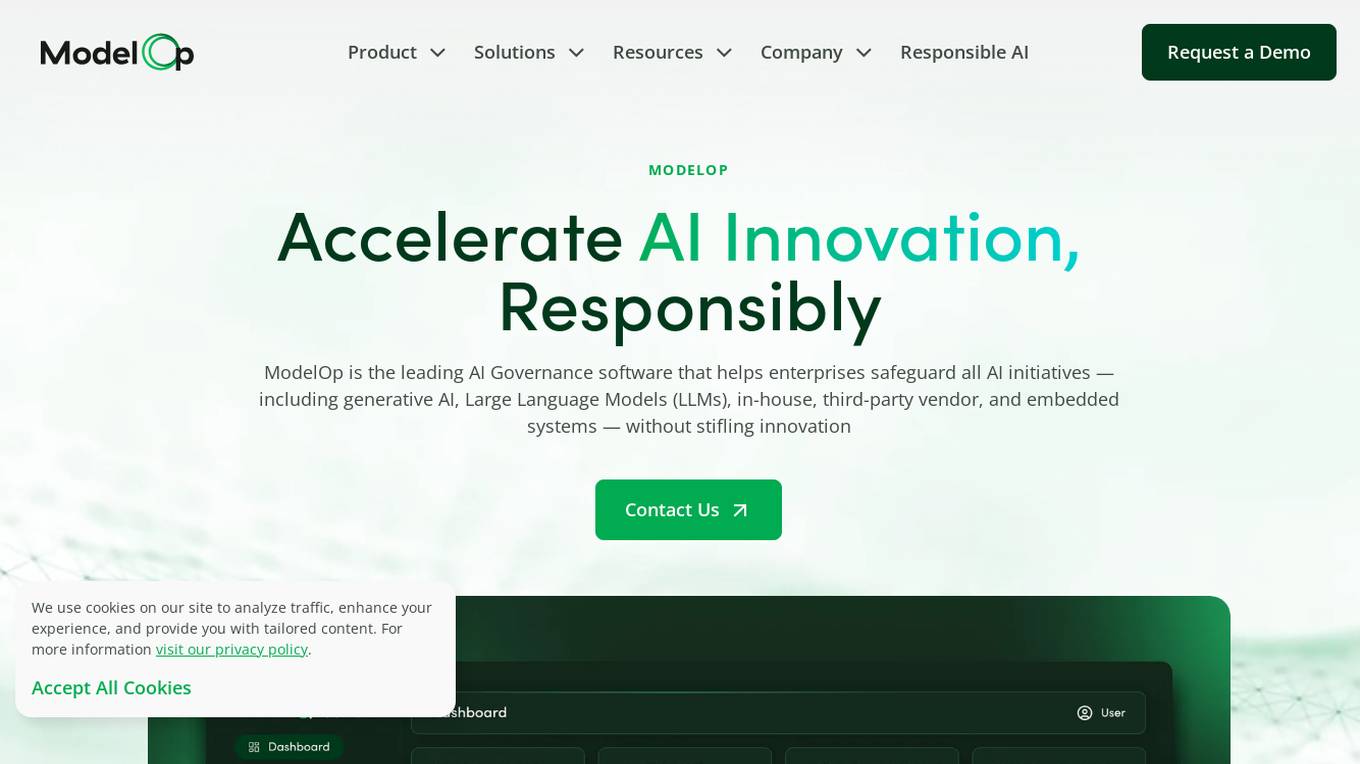
ModelOp
ModelOp is the leading AI Governance software for enterprises, providing a single source of truth for all AI systems, automated process workflows, real-time insights, and integrations to extend the value of existing technology investments. It helps organizations safeguard AI initiatives without stifling innovation, ensuring compliance, accelerating innovation, and improving key performance indicators. ModelOp supports generative AI, Large Language Models (LLMs), in-house, third-party vendor, and embedded systems. The software enables visibility, accountability, risk tiering, systemic tracking, enforceable controls, workflow automation, reporting, and rapid establishment of AI governance.
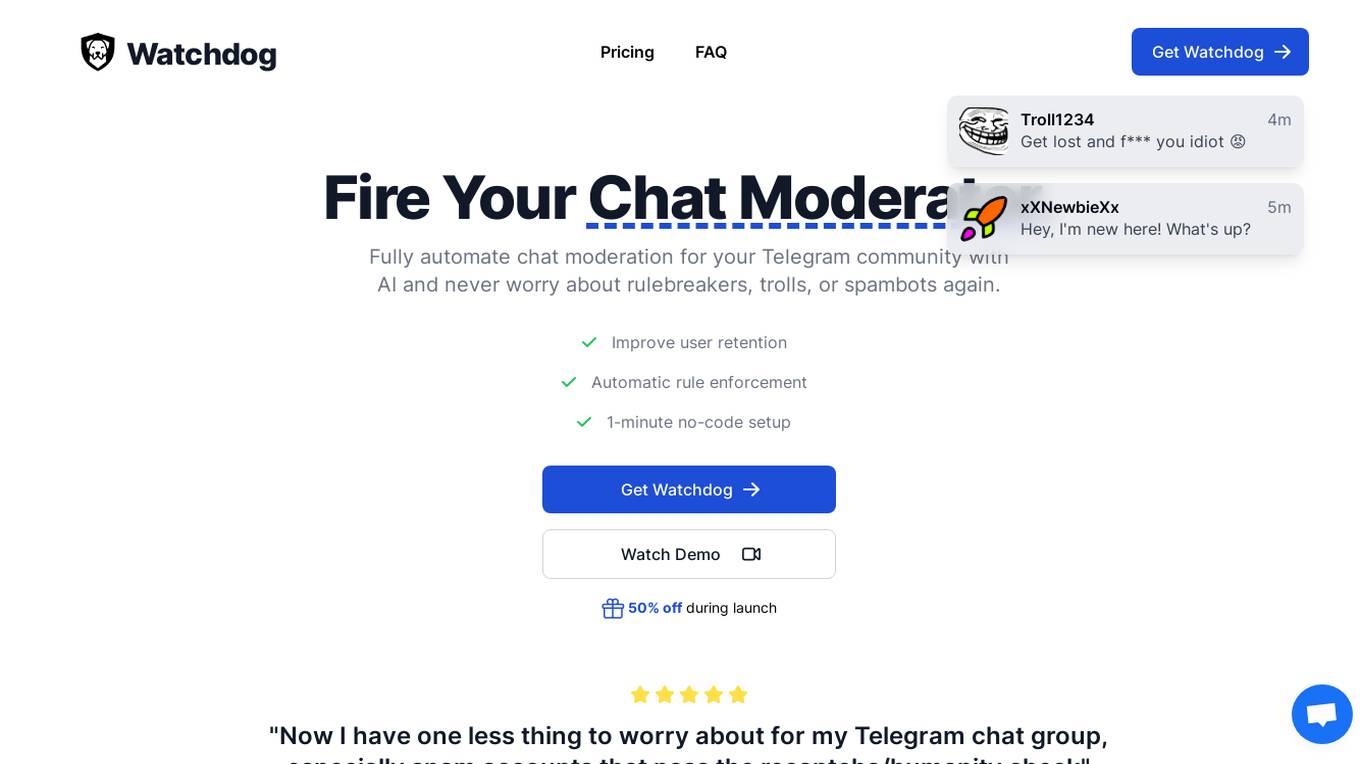
Watchdog
Watchdog is an AI-powered chat moderation tool designed to fully automate chat moderation for Telegram communities. It helps community owners tackle rulebreakers, trolls, and spambots effortlessly, ensuring consistent rule enforcement and user retention. With features like automatic monitoring, customizable rule enforcement, and quick setup, Watchdog offers significant cost savings and eliminates the need for manual moderation. The tool is developed by Ben, a solo developer, who created it to address the challenges he faced in managing his own community. Watchdog aims to save time, money, and enhance user experience by swiftly identifying and handling rule violations.

Pulumi
Pulumi is an AI-powered Infrastructure as Code (IaC) tool that allows engineers to provision and manage cloud infrastructure using standard programming languages like Node.js, Python, Go, .NET, Java, and YAML. It offers features such as cloud management automation, policy enforcement, and code generation through natural language commands. Pulumi aims to accelerate productivity, enforce compliance, and provide insights for faster infrastructure deployment and management across multiple clouds.

Protect AI
Protect AI is a comprehensive platform designed to secure AI systems by providing visibility and manageability to detect and mitigate unique AI security threats. The platform empowers organizations to embrace a security-first approach to AI, offering solutions for AI Security Posture Management, ML model security enforcement, AI/ML supply chain vulnerability database, LLM security monitoring, and observability. Protect AI aims to safeguard AI applications and ML systems from potential vulnerabilities, enabling users to build, adopt, and deploy AI models confidently and at scale.
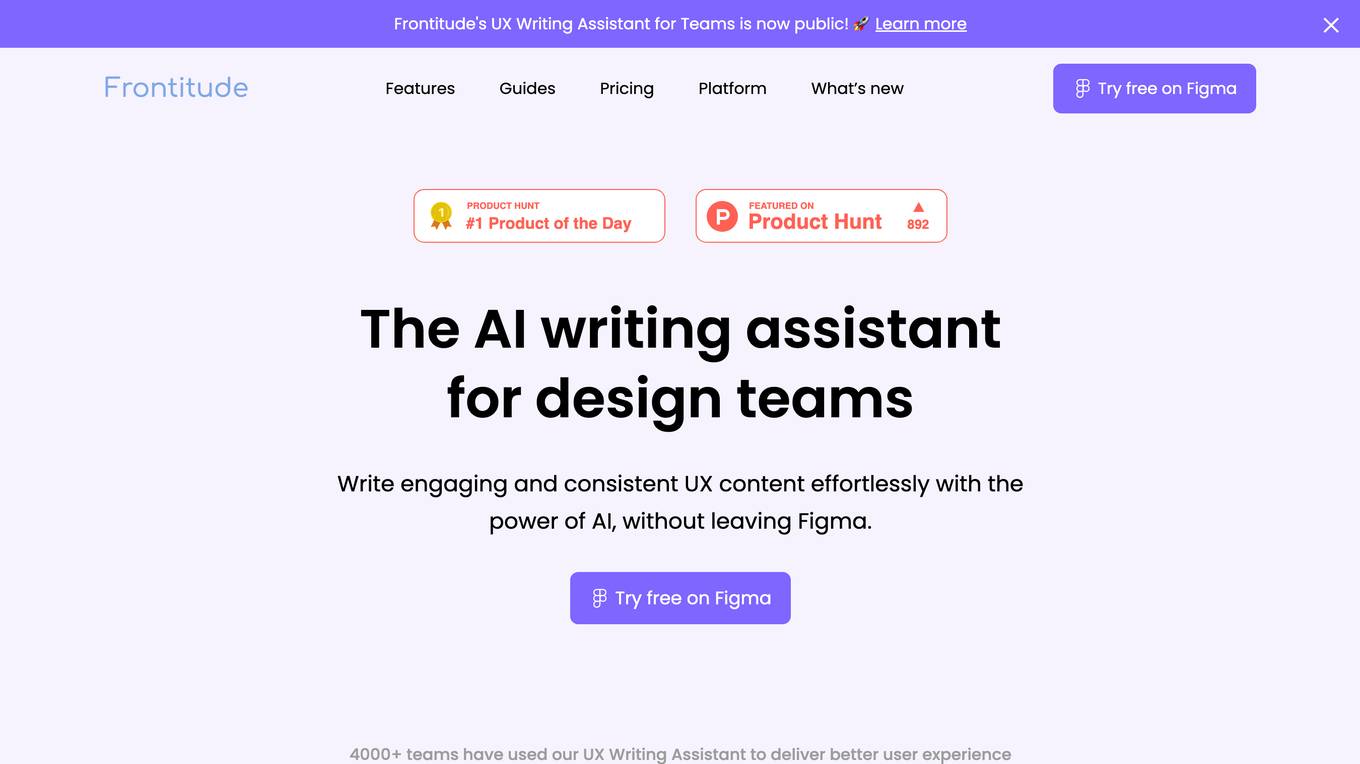
Frontitude UX Writing Assistant
Frontitude is an AI writing assistant designed specifically for design teams, offering a seamless integration with Figma to help users write engaging and consistent UX content effortlessly. The tool provides copy suggestions based on design elements, character limits, and length, empowering teams to deliver better user experiences and save time on writing tasks. Frontitude also allows users to embed content guidelines into their design components, streamlining design reviews and critiques. With a focus on product copy and UX writing best practices, Frontitude's AI Writing Assistant is a valuable tool for designers looking to maintain a consistent voice and enhance their workflow.
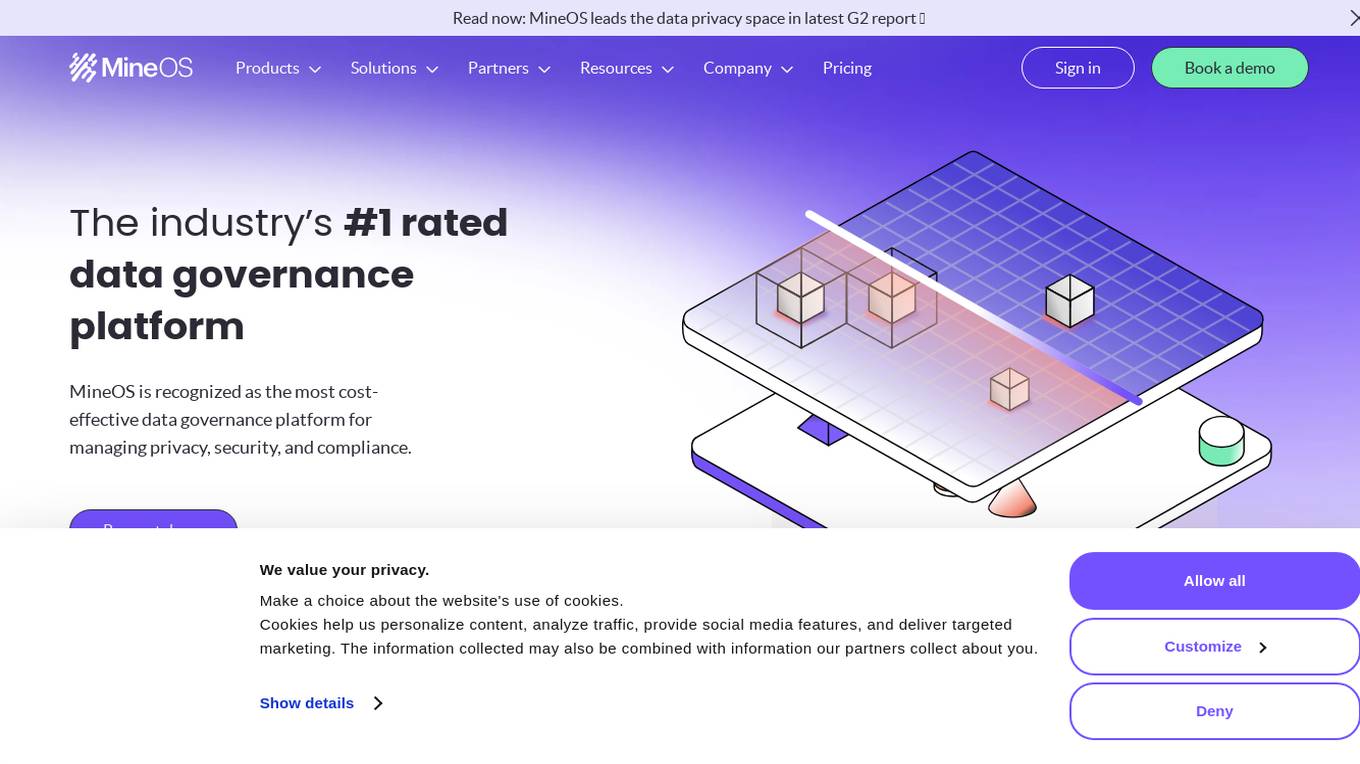
MineOS
MineOS is an automation-driven platform that focuses on privacy, security, and compliance. It offers a comprehensive suite of tools and solutions to help businesses manage their data privacy needs efficiently. By leveraging AI and special discovery methods, MineOS adapts unique data processes to universal privacy standards seamlessly. The platform provides features such as data mapping, AI governance, DSR automations, consent management, and security & compliance solutions to ensure data visibility and governance. MineOS is recognized as the industry's #1 rated data governance platform, offering cost-effective control of data systems and centralizing data subject request handling.
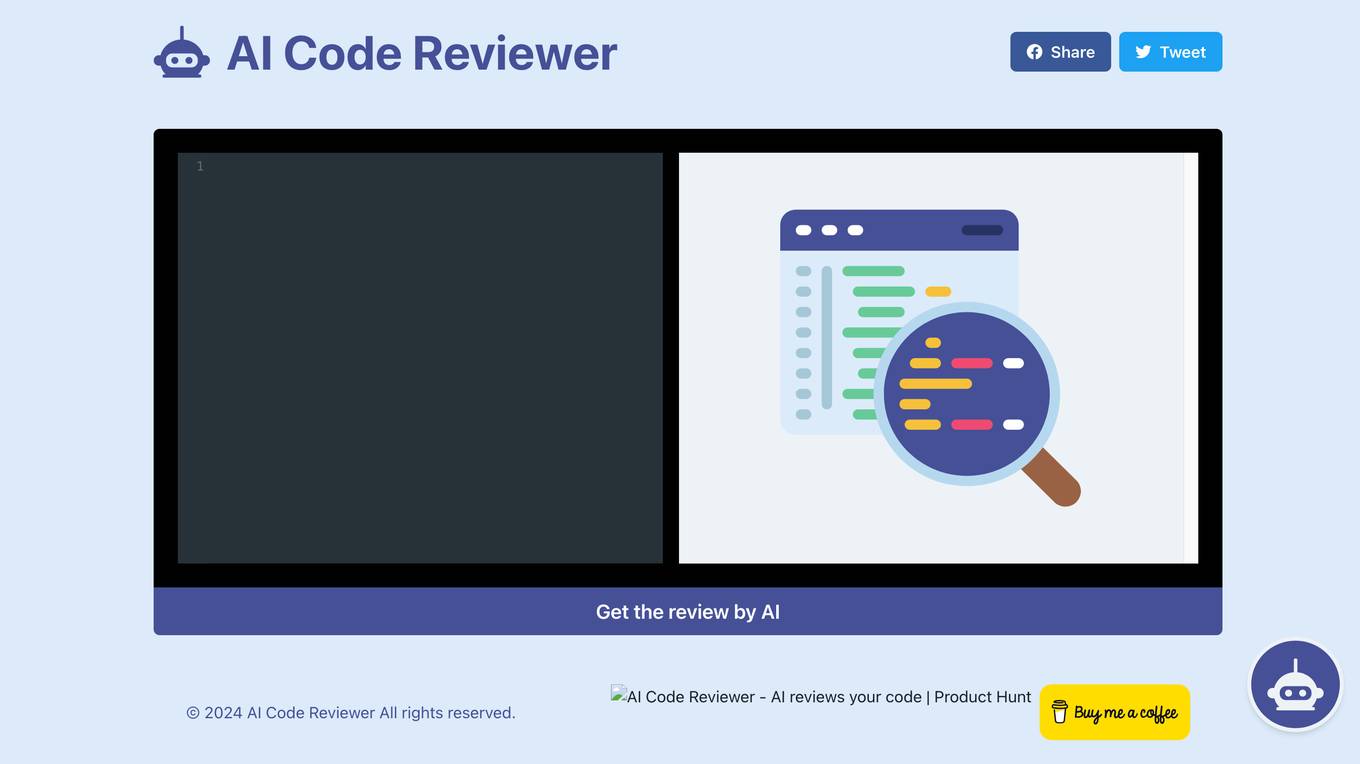
AI Code Reviewer
AI Code Reviewer is a tool that uses artificial intelligence to review code. It can help you find bugs, improve code quality, and enforce coding standards.
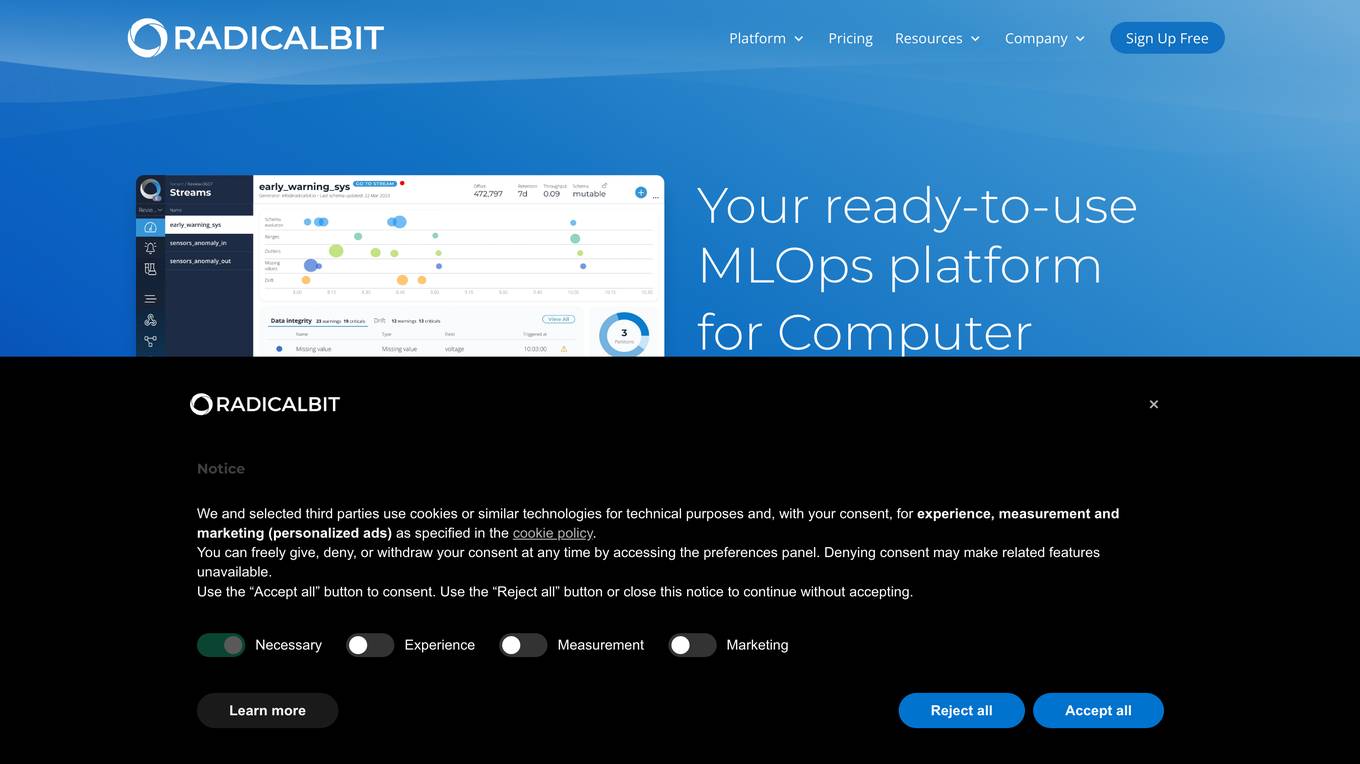
Radicalbit
Radicalbit is an MLOps and AI Observability platform that helps businesses deploy, serve, observe, and explain their AI models. It provides a range of features to help data teams maintain full control over the entire data lifecycle, including real-time data exploration, outlier and drift detection, and model monitoring in production. Radicalbit can be seamlessly integrated into any ML stack, whether SaaS or on-prem, and can be used to run AI applications in minutes.
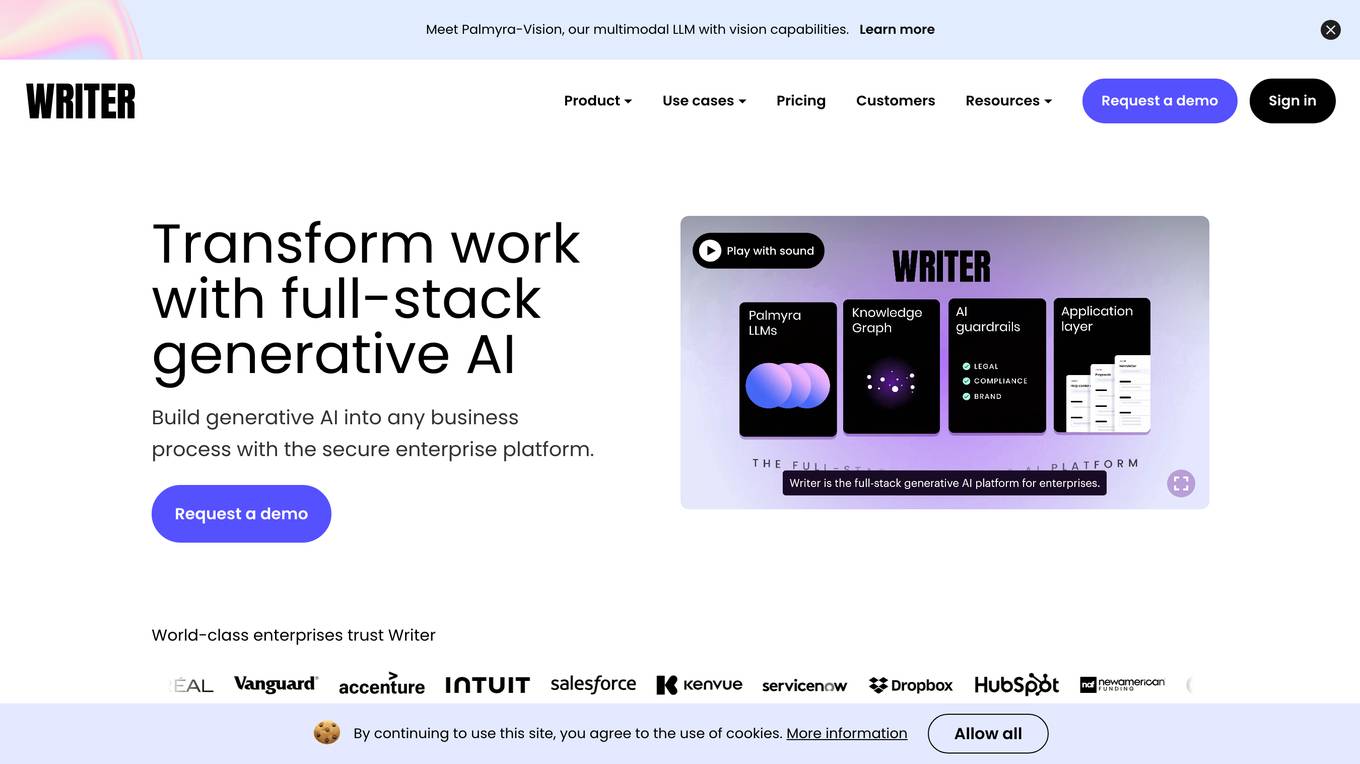
Writer
Writer is a full-stack generative AI platform that enables businesses to build and deploy custom AI applications for a wide range of use cases, including digital assistants, content generation, summarization, and data analysis. Writer's platform is designed to be accurate, scalable, and cost-effective, and it offers a variety of features to help businesses get the most out of generative AI, including: - Palmyra LLMs: Writer's family of LLMs is purpose-built for the enterprise and offers a range of capabilities, including question-answering, image analysis, and multilingual translation. - Knowledge Graph: Writer's Knowledge Graph anchors generative AI in your company data, resulting in higher accuracy and fewer hallucinations. - AI guardrails: Writer's AI guardrails help businesses enforce their regulatory, legal, inclusivity, and brand rules across all work, whether it's created by their people or AI. - Flexible application layer: Writer's flexible application layer offers a wide range of interfaces to meet your specific needs, whether you're using a prebuilt app, building a custom app, or making requests to our out-of-the-box chat app.
20 - Open Source AI Tools

instructor-php
Instructor for PHP is a library designed for structured data extraction in PHP, powered by Large Language Models (LLMs). It simplifies the process of extracting structured, validated data from unstructured text or chat sequences. Instructor enhances workflow by providing a response model, validation capabilities, and max retries for requests. It supports classes as response models and provides features like partial results, string input, extracting scalar and enum values, and specifying data models using PHP type hints or DocBlock comments. The library allows customization of validation and provides detailed event notifications during request processing. Instructor is compatible with PHP 8.2+ and leverages PHP reflection, Symfony components, and SaloonPHP for communication with LLM API providers.

OpenAdapt
OpenAdapt is an open-source software adapter between Large Multimodal Models (LMMs) and traditional desktop and web Graphical User Interfaces (GUIs). It aims to automate repetitive GUI workflows by leveraging the power of LMMs. OpenAdapt records user input and screenshots, converts them into tokenized format, and generates synthetic input via transformer model completions. It also analyzes recordings to generate task trees and replay synthetic input to complete tasks. OpenAdapt is model agnostic and generates prompts automatically by learning from human demonstration, ensuring that agents are grounded in existing processes and mitigating hallucinations. It works with all types of desktop GUIs, including virtualized and web, and is open source under the MIT license.
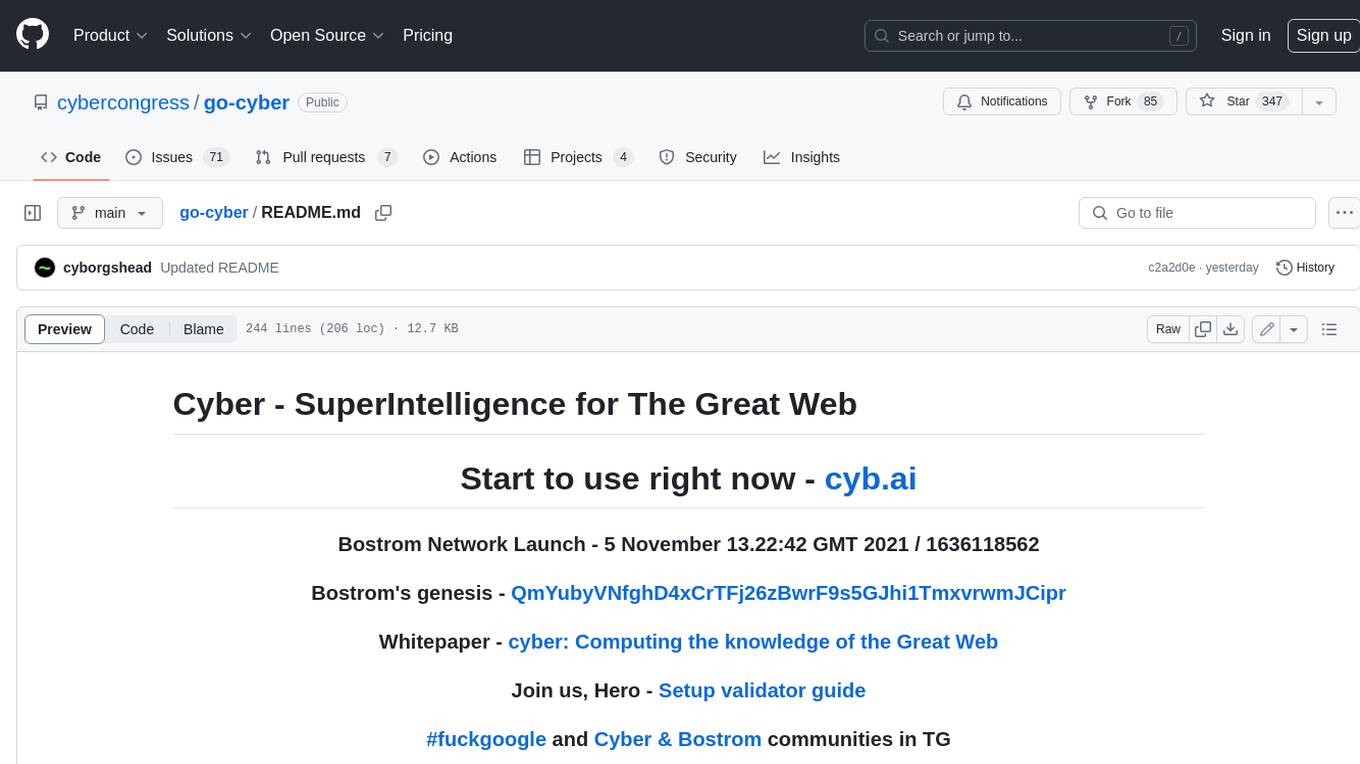
go-cyber
Cyber is a superintelligence protocol that aims to create a decentralized and censorship-resistant internet. It uses a novel consensus mechanism called CometBFT and a knowledge graph to store and process information. Cyber is designed to be scalable, secure, and efficient, and it has the potential to revolutionize the way we interact with the internet.

pandas-ai
PandasAI is a Python library that makes it easy to ask questions to your data in natural language. It helps you to explore, clean, and analyze your data using generative AI.
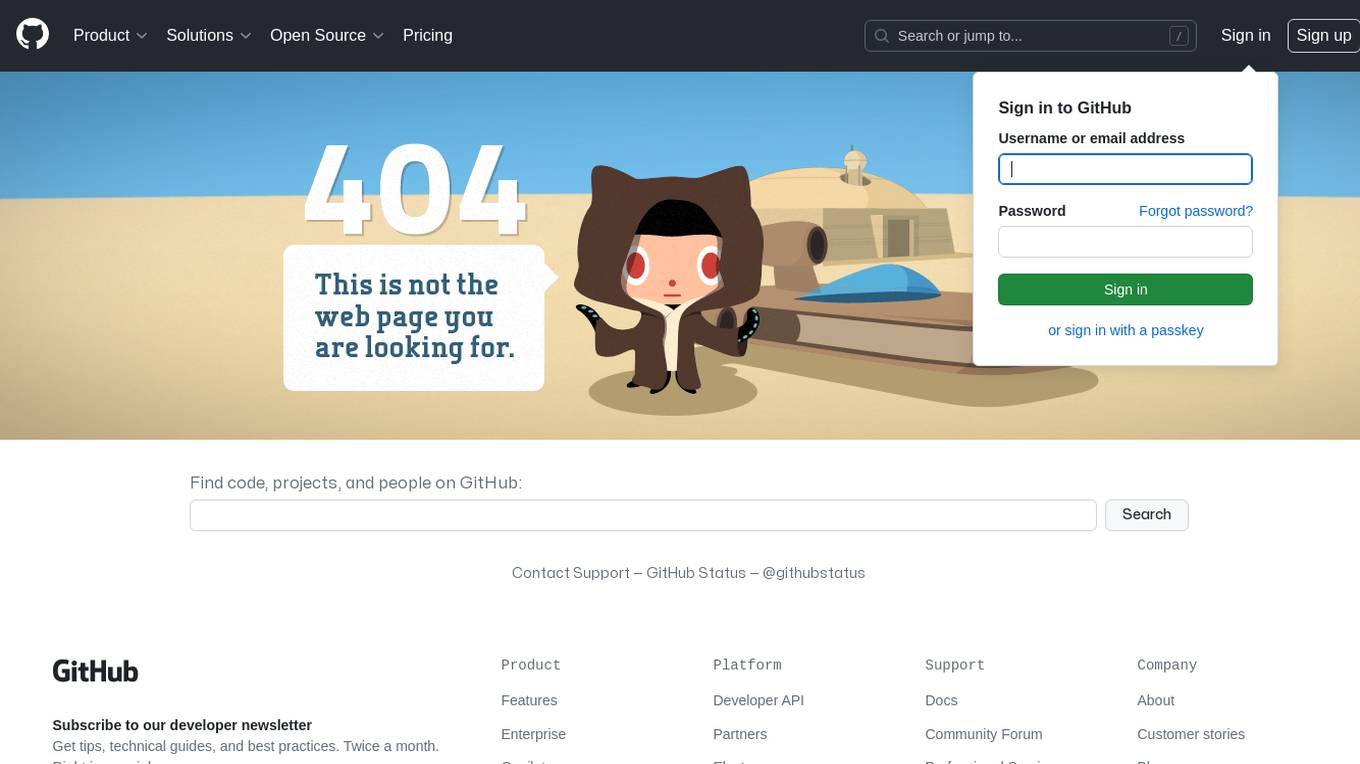
CHATPGT-MEV-BOT
The 𝓜𝓔𝓥-𝓑𝓞𝓣 is a revolutionary tool that empowers users to maximize their ETH earnings through advanced slippage techniques within the Ethereum ecosystem. Its user-centric design, optimized earning mechanism, and comprehensive security measures make it an indispensable tool for traders seeking to enhance their crypto trading strategies. With its current free access, there's no better time to explore the 𝓜𝓔𝓥-𝓑𝓞𝓣's capabilities and witness the transformative impact it can have on your crypto trading journey.
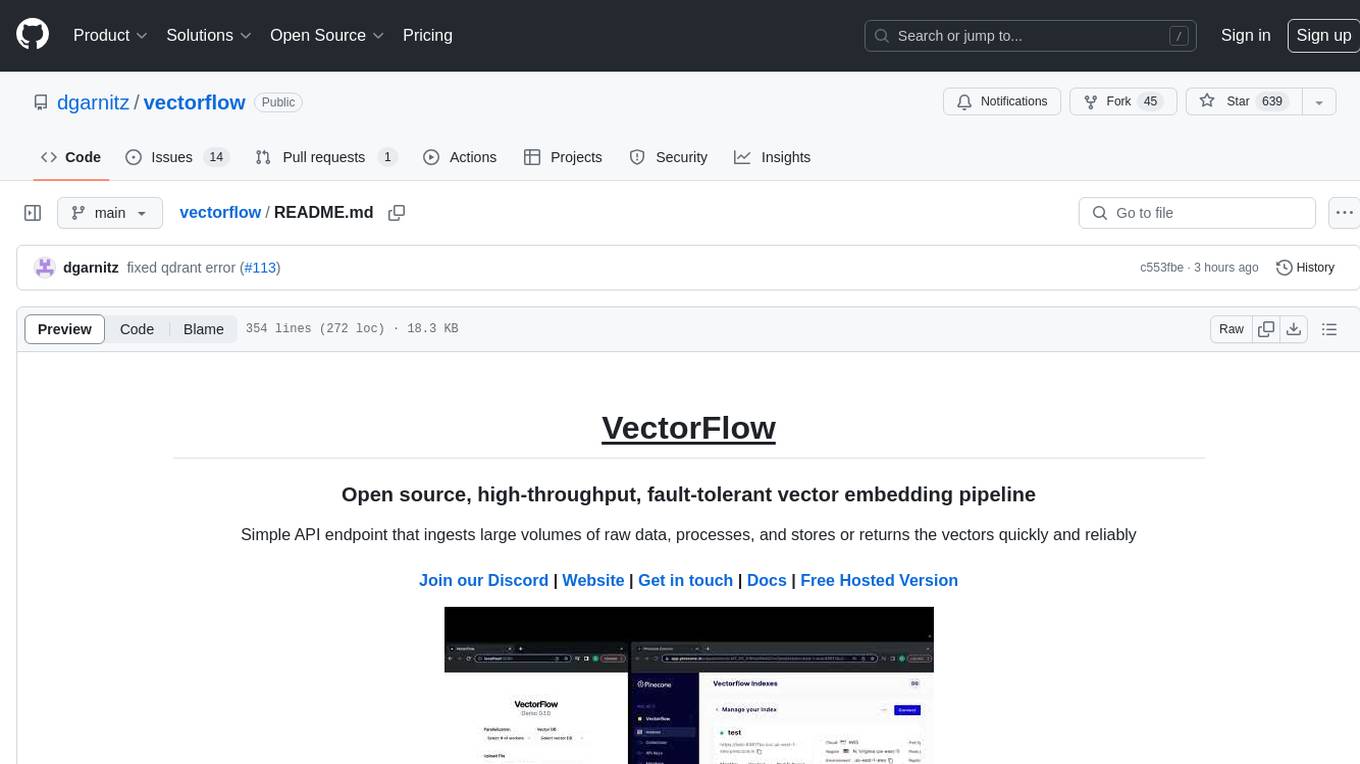
vectorflow
VectorFlow is an open source, high throughput, fault tolerant vector embedding pipeline. It provides a simple API endpoint for ingesting large volumes of raw data, processing, and storing or returning the vectors quickly and reliably. The tool supports text-based files like TXT, PDF, HTML, and DOCX, and can be run locally with Kubernetes in production. VectorFlow offers functionalities like embedding documents, running chunking schemas, custom chunking, and integrating with vector databases like Pinecone, Qdrant, and Weaviate. It enforces a standardized schema for uploading data to a vector store and supports features like raw embeddings webhook, chunk validation webhook, S3 endpoint, and telemetry. The tool can be used with the Python client and provides detailed instructions for running and testing the functionalities.
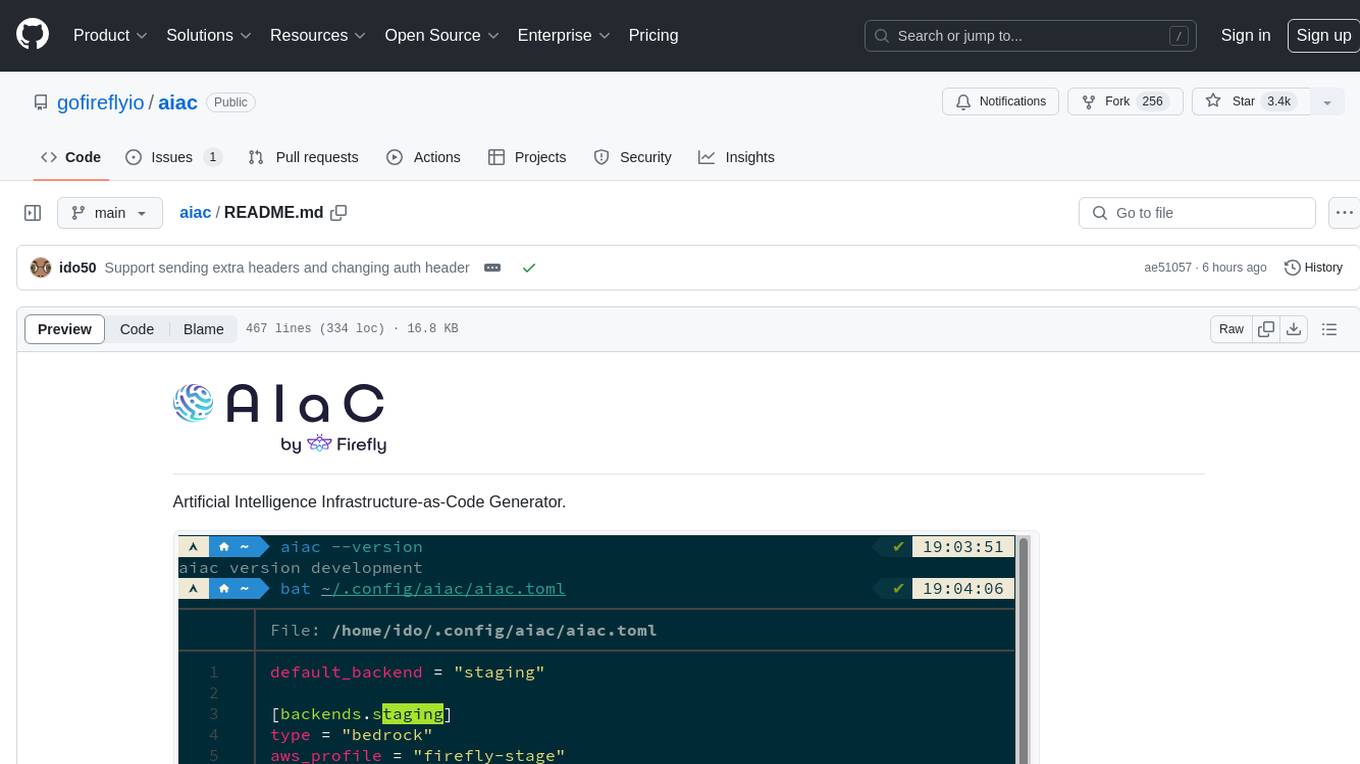
aiac
AIAC is a library and command line tool to generate Infrastructure as Code (IaC) templates, configurations, utilities, queries, and more via LLM providers such as OpenAI, Amazon Bedrock, and Ollama. Users can define multiple 'backends' targeting different LLM providers and environments using a simple configuration file. The tool allows users to ask a model to generate templates for different scenarios and composes an appropriate request to the selected provider, storing the resulting code to a file and/or printing it to standard output.
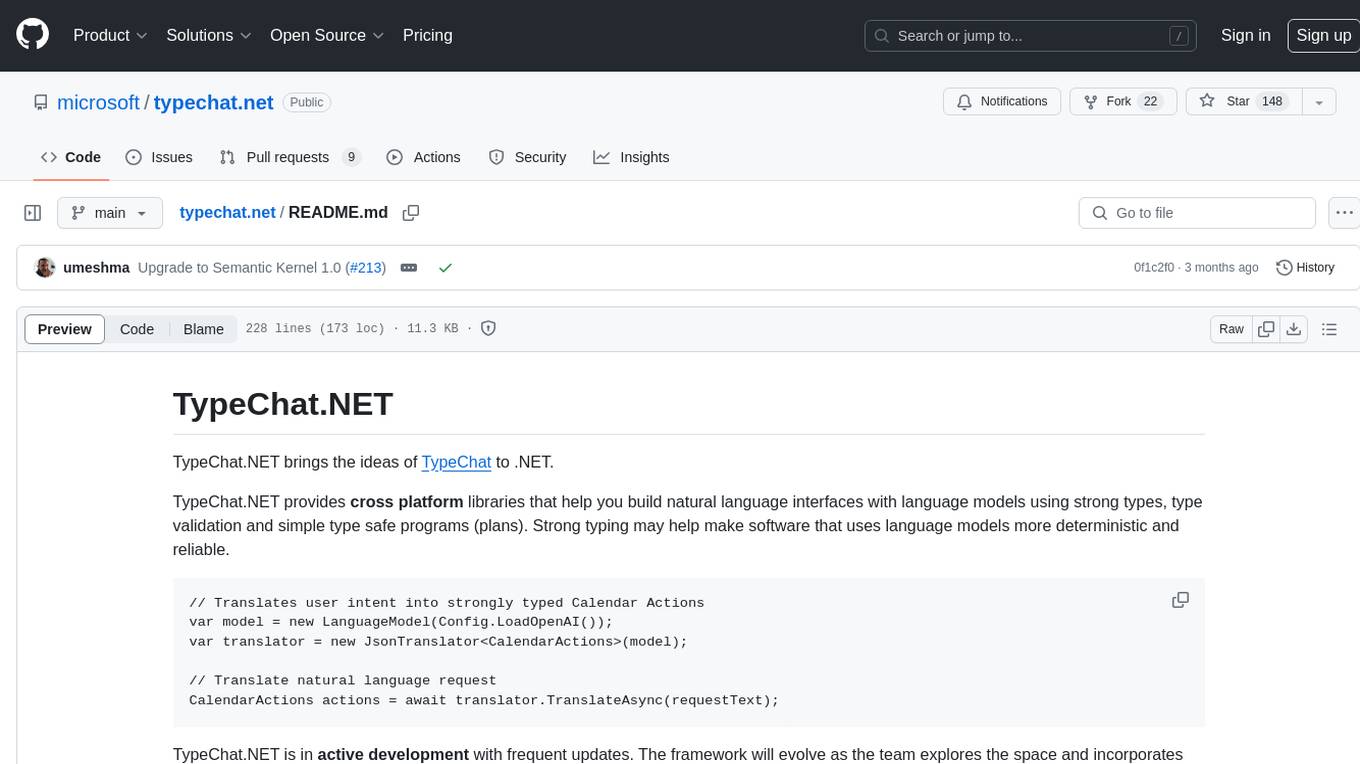
typechat.net
TypeChat.NET is a framework that provides cross-platform libraries for building natural language interfaces with language models using strong types, type validation, and simple type-safe programs. It translates user intent into strongly typed objects and JSON programs, with support for schema export, extensibility, and common scenarios. The framework is actively developed with frequent updates, evolving based on exploration and feedback. It consists of assemblies for translating user intent, synthesizing JSON programs, and integrating with Microsoft Semantic Kernel. TypeChat.NET requires familiarity with and access to OpenAI language models for its examples and scenarios.
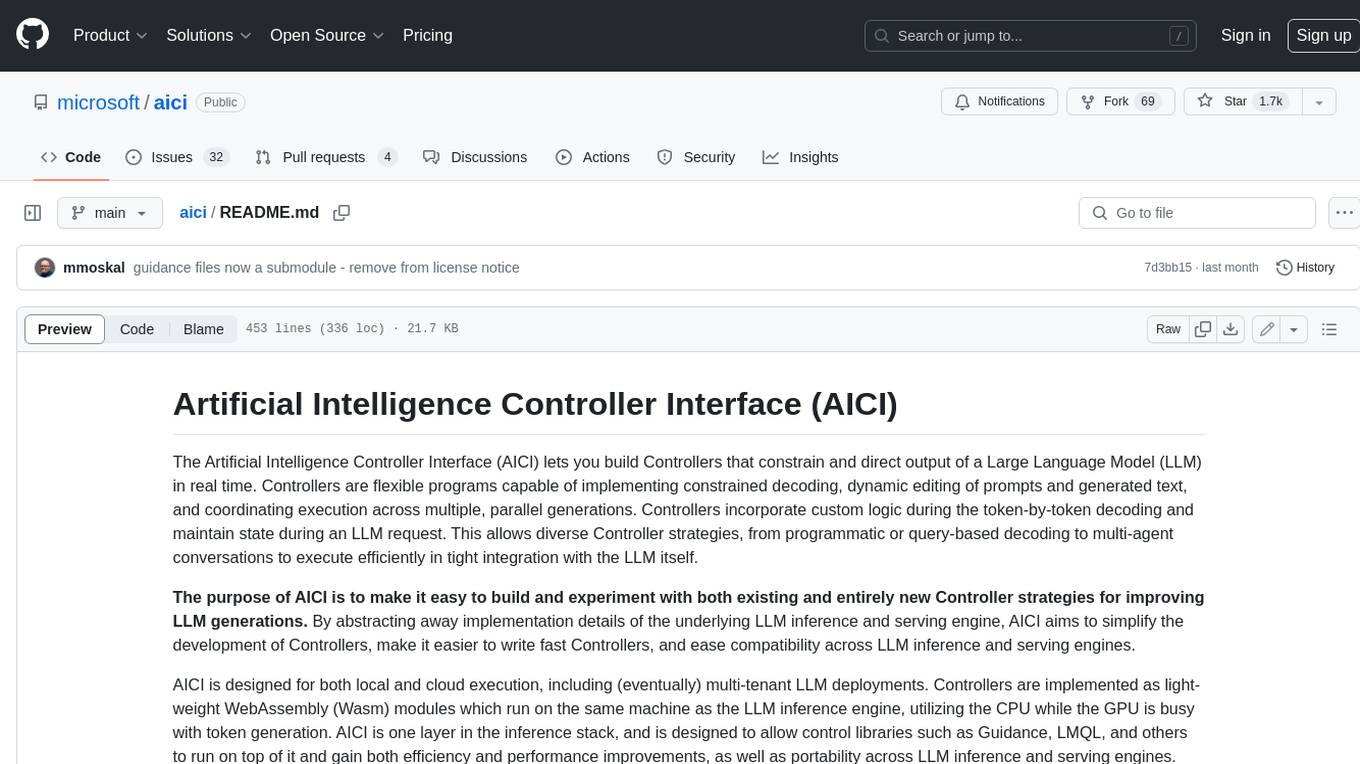
aici
The Artificial Intelligence Controller Interface (AICI) lets you build Controllers that constrain and direct output of a Large Language Model (LLM) in real time. Controllers are flexible programs capable of implementing constrained decoding, dynamic editing of prompts and generated text, and coordinating execution across multiple, parallel generations. Controllers incorporate custom logic during the token-by-token decoding and maintain state during an LLM request. This allows diverse Controller strategies, from programmatic or query-based decoding to multi-agent conversations to execute efficiently in tight integration with the LLM itself.
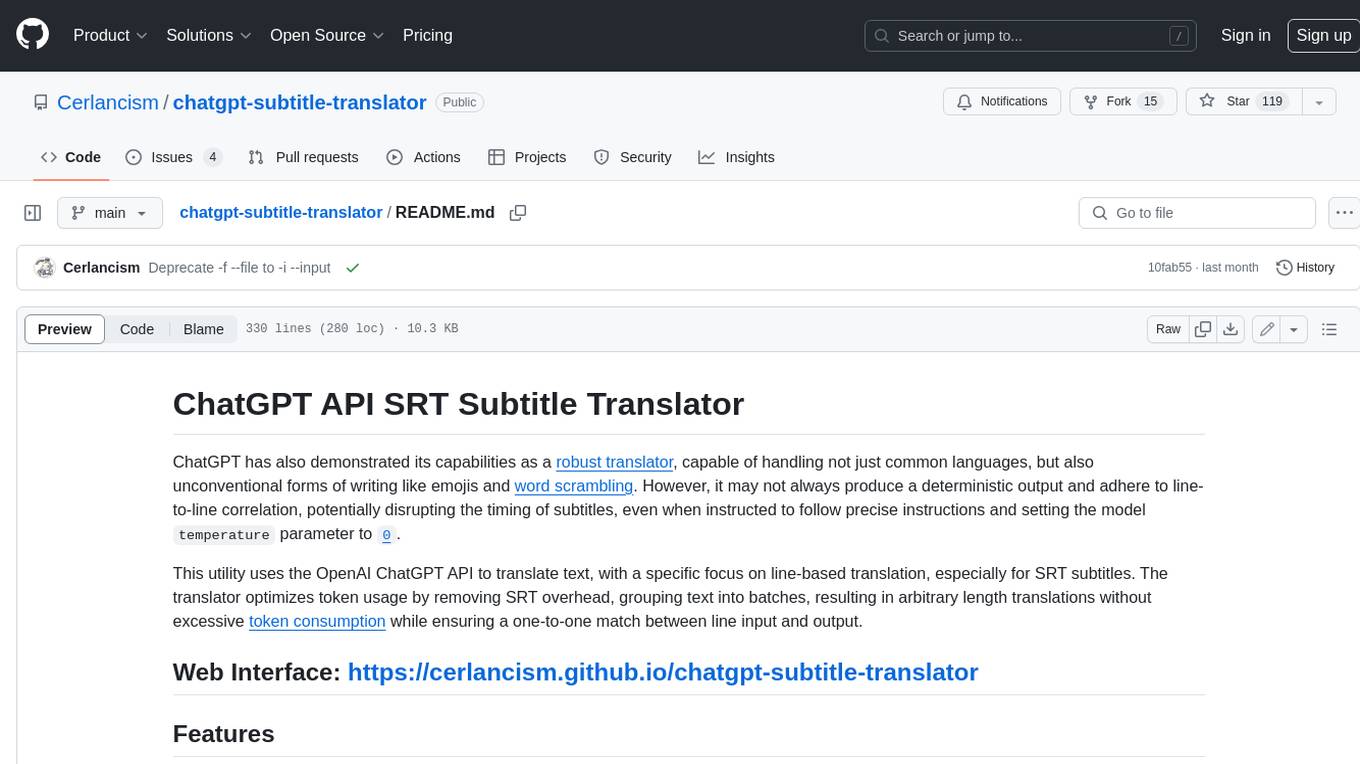
chatgpt-subtitle-translator
This tool utilizes the OpenAI ChatGPT API to translate text, with a focus on line-based translation, particularly for SRT subtitles. It optimizes token usage by removing SRT overhead and grouping text into batches, allowing for arbitrary length translations without excessive token consumption while maintaining a one-to-one match between line input and output.
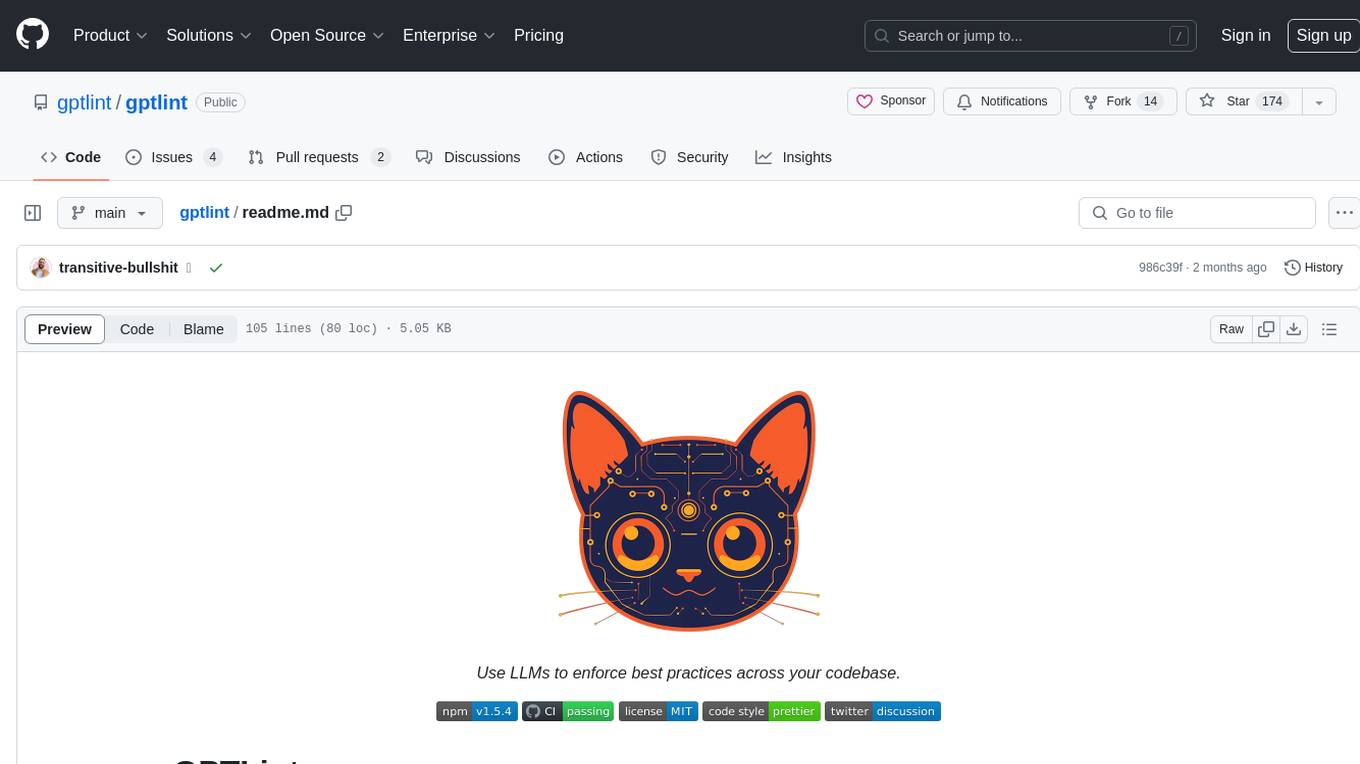
gptlint
GPTLint is a tool that utilizes Large Language Models (LLMs) to enforce higher-level best practices across a codebase. It offers features such as enforcing rules that are impossible with AST-based approaches, simple markdown format for rules, easy customization of rules, support for custom project-specific rules, content-based caching, and outputting LLM stats per run. GPTLint supports all major LLM providers and local models, augments ESLint instead of replacing it, and includes guidelines for creating custom rules. However, the MVP rules are currently limited to JS/TS only, single-file context only, and do not support autofixing.
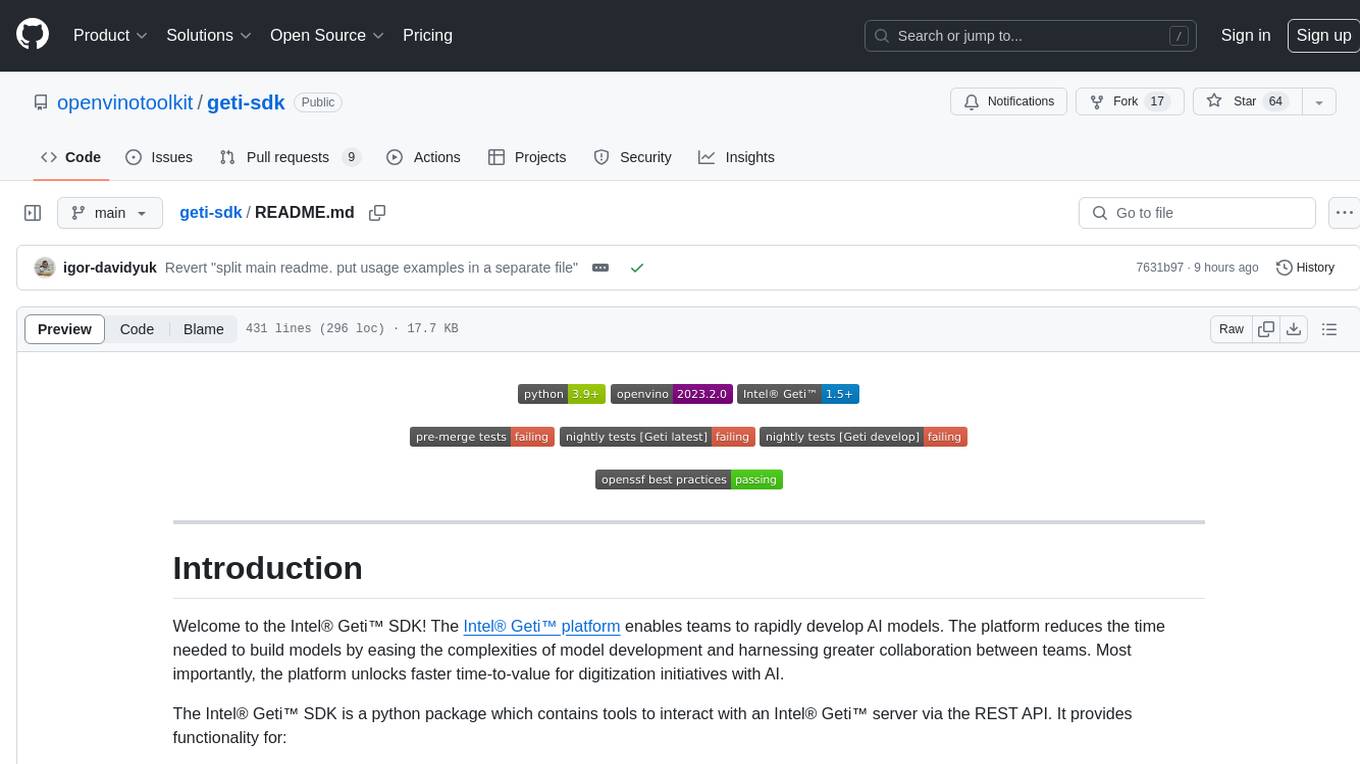
geti-sdk
The Intel® Geti™ SDK is a python package that enables teams to rapidly develop AI models by easing the complexities of model development and enhancing collaboration between teams. It provides tools to interact with an Intel® Geti™ server via the REST API, allowing for project creation, downloading, uploading, deploying for local inference with OpenVINO, setting project and model configuration, launching and monitoring training jobs, and media upload and prediction. The SDK also includes tutorial-style Jupyter notebooks demonstrating its usage.

gpt4all
GPT4All is an ecosystem to run powerful and customized large language models that work locally on consumer grade CPUs and any GPU. Note that your CPU needs to support AVX or AVX2 instructions. Learn more in the documentation. A GPT4All model is a 3GB - 8GB file that you can download and plug into the GPT4All open-source ecosystem software. Nomic AI supports and maintains this software ecosystem to enforce quality and security alongside spearheading the effort to allow any person or enterprise to easily train and deploy their own on-edge large language models.
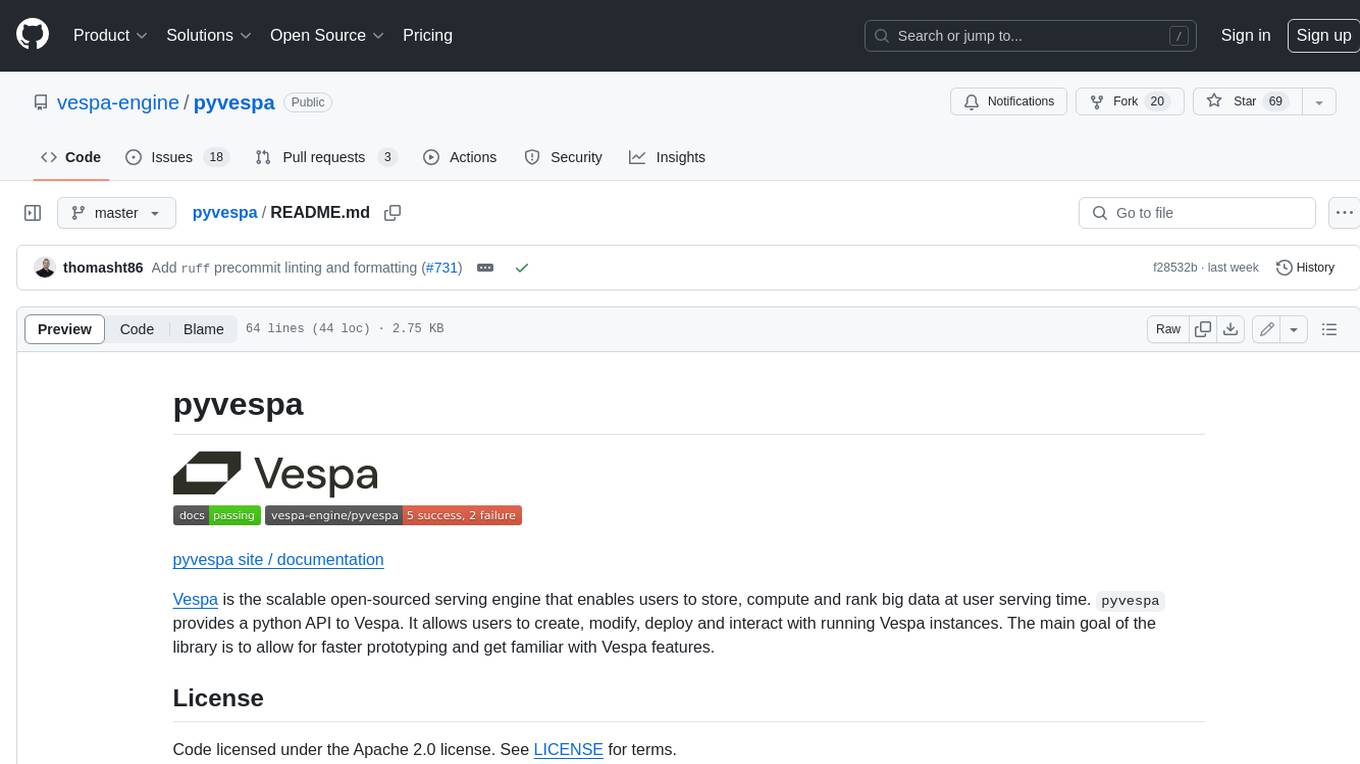
pyvespa
Vespa is a scalable open-source serving engine that enables users to store, compute, and rank big data at user serving time. Pyvespa provides a Python API to Vespa, allowing users to create, modify, deploy, and interact with running Vespa instances. The library's primary purpose is to facilitate faster prototyping and familiarization with Vespa features.
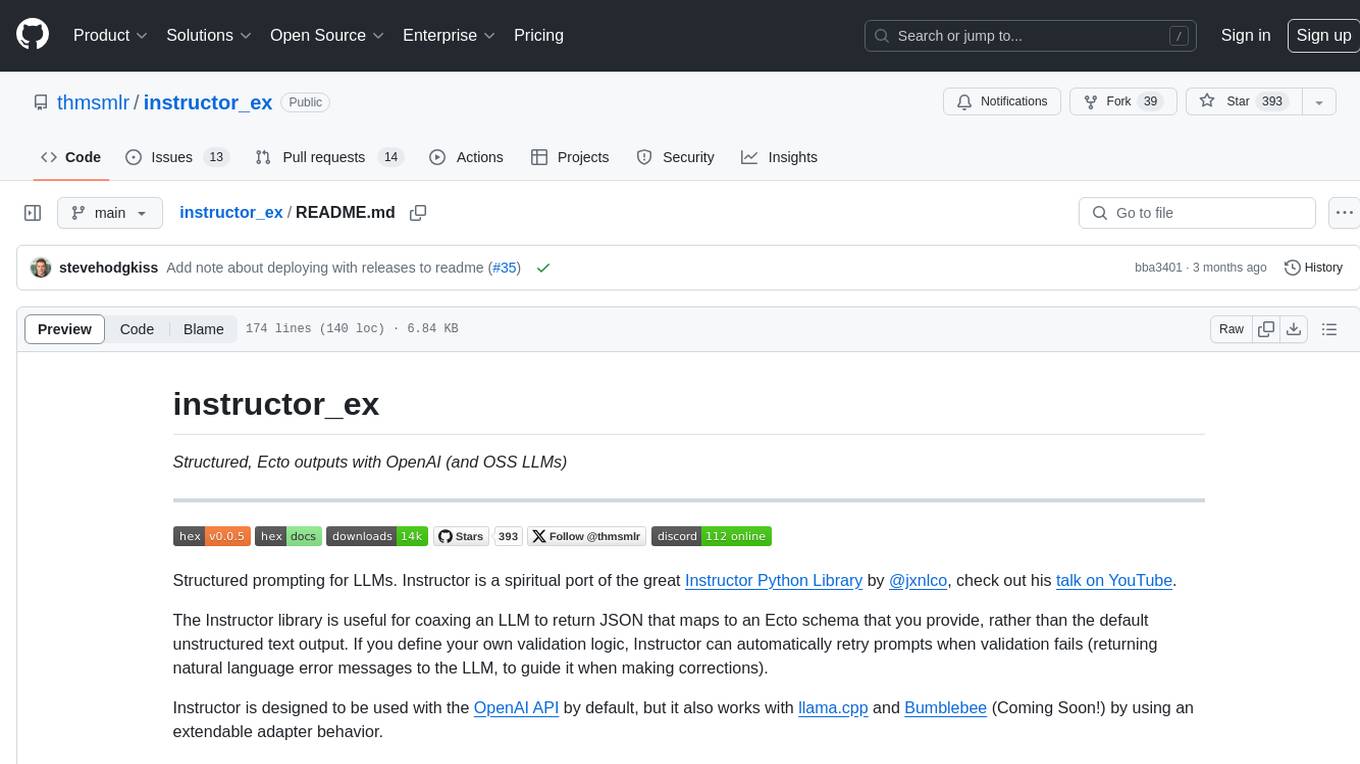
instructor_ex
Instructor is a tool designed to structure outputs from OpenAI and other OSS LLMs by coaxing them to return JSON that maps to a provided Ecto schema. It allows for defining validation logic to guide LLMs in making corrections, and supports automatic retries. Instructor is primarily used with the OpenAI API but can be extended to work with other platforms. The tool simplifies usage by creating an ecto schema, defining a validation function, and making calls to chat_completion with instructions for the LLM. It also offers features like max_retries to fix validation errors iteratively.
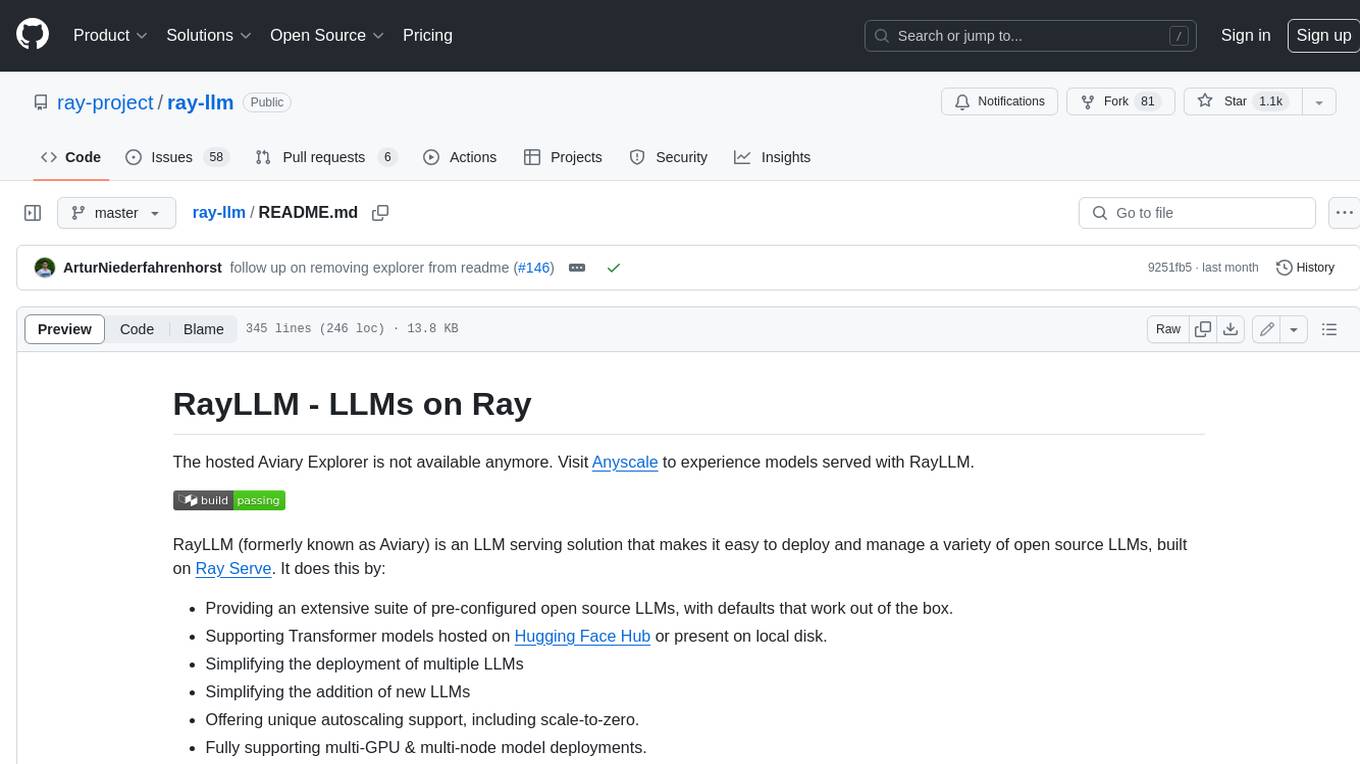
ray-llm
RayLLM (formerly known as Aviary) is an LLM serving solution that makes it easy to deploy and manage a variety of open source LLMs, built on Ray Serve. It provides an extensive suite of pre-configured open source LLMs, with defaults that work out of the box. RayLLM supports Transformer models hosted on Hugging Face Hub or present on local disk. It simplifies the deployment of multiple LLMs, the addition of new LLMs, and offers unique autoscaling support, including scale-to-zero. RayLLM fully supports multi-GPU & multi-node model deployments and offers high performance features like continuous batching, quantization and streaming. It provides a REST API that is similar to OpenAI's to make it easy to migrate and cross test them. RayLLM supports multiple LLM backends out of the box, including vLLM and TensorRT-LLM.
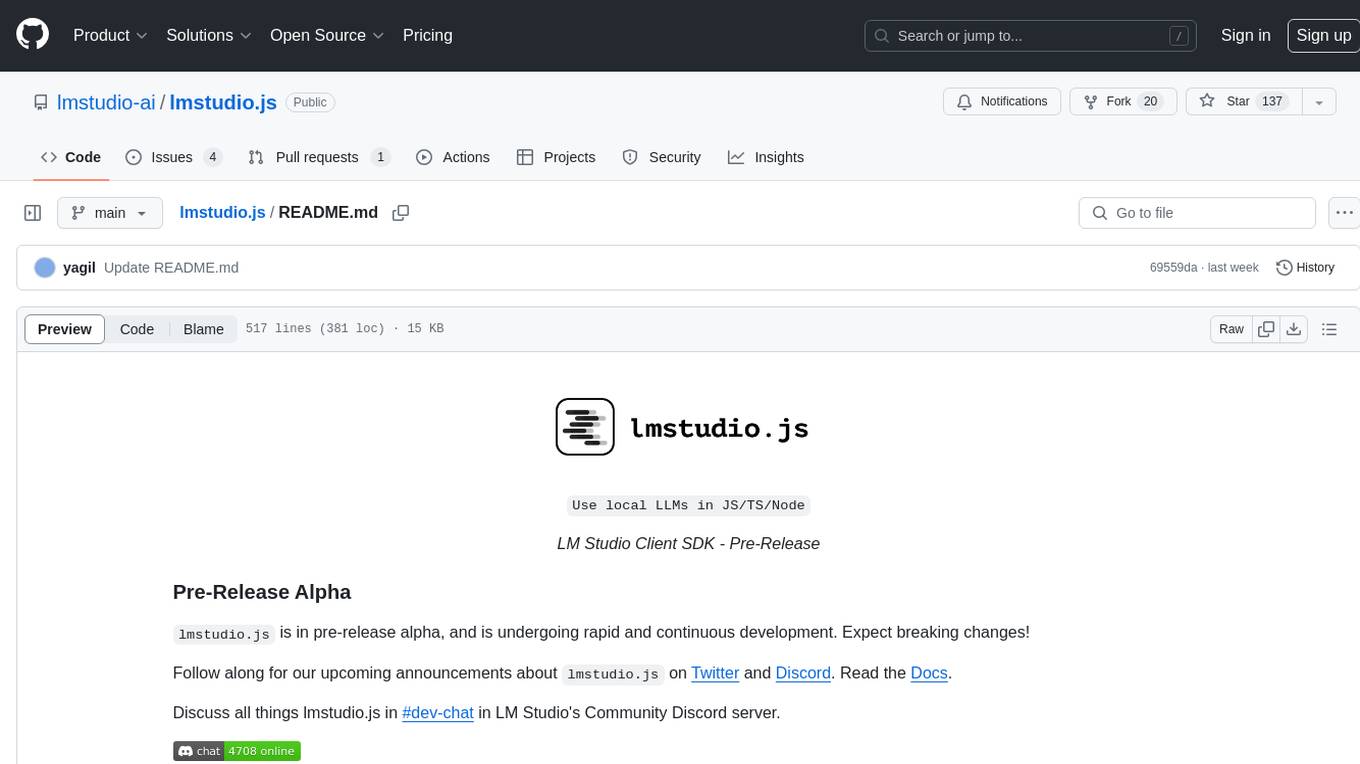
lmstudio.js
lmstudio.js is a pre-release alpha client SDK for LM Studio, allowing users to use local LLMs in JS/TS/Node. It is currently undergoing rapid development with breaking changes expected. Users can follow LM Studio's announcements on Twitter and Discord. The SDK provides API usage for loading models, predicting text, setting up the local LLM server, and more. It supports features like custom loading progress tracking, model unloading, structured output prediction, and cancellation of predictions. Users can interact with LM Studio through the CLI tool 'lms' and perform tasks like text completion, conversation, and getting prediction statistics.
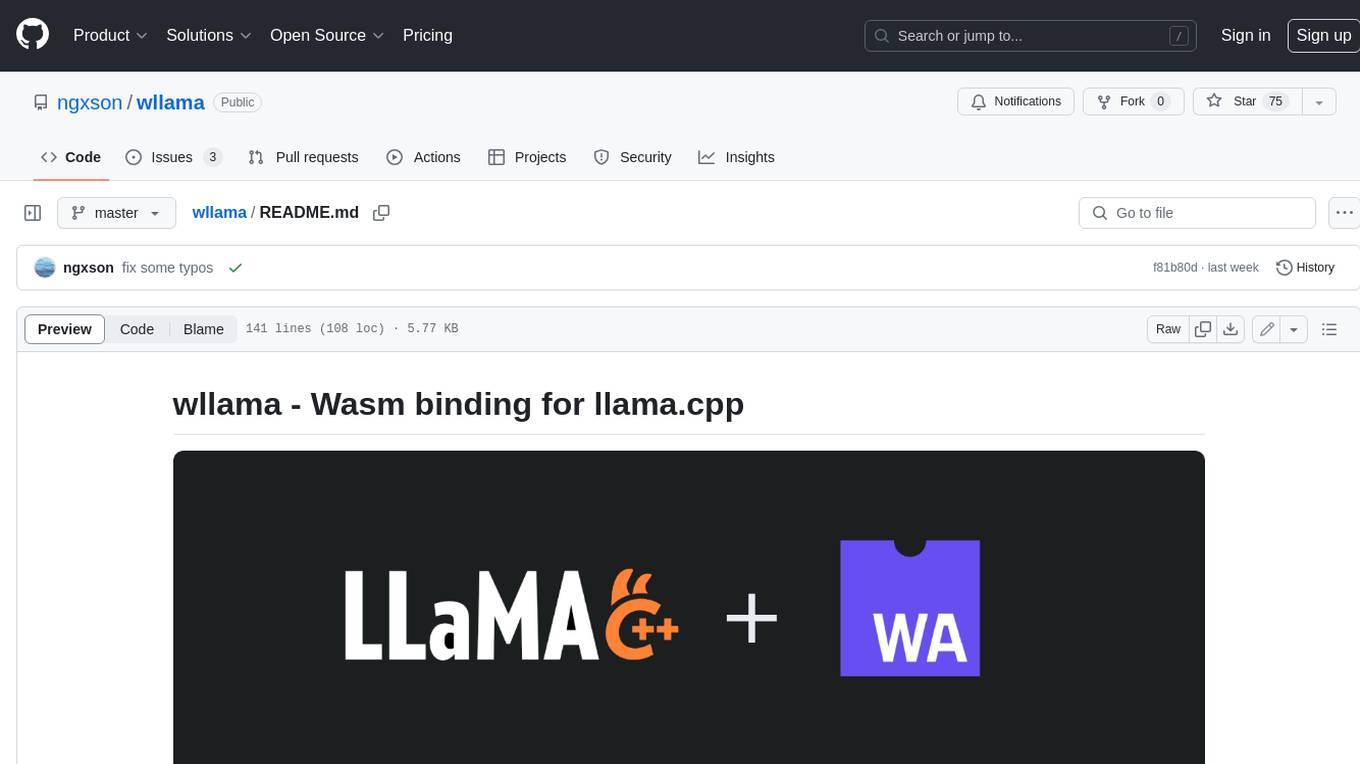
wllama
Wllama is a WebAssembly binding for llama.cpp, a high-performance and lightweight language model library. It enables you to run inference directly on the browser without the need for a backend or GPU. Wllama provides both high-level and low-level APIs, allowing you to perform various tasks such as completions, embeddings, tokenization, and more. It also supports model splitting, enabling you to load large models in parallel for faster download. With its Typescript support and pre-built npm package, Wllama is easy to integrate into your React Typescript projects.
10 - OpenAI Gpts
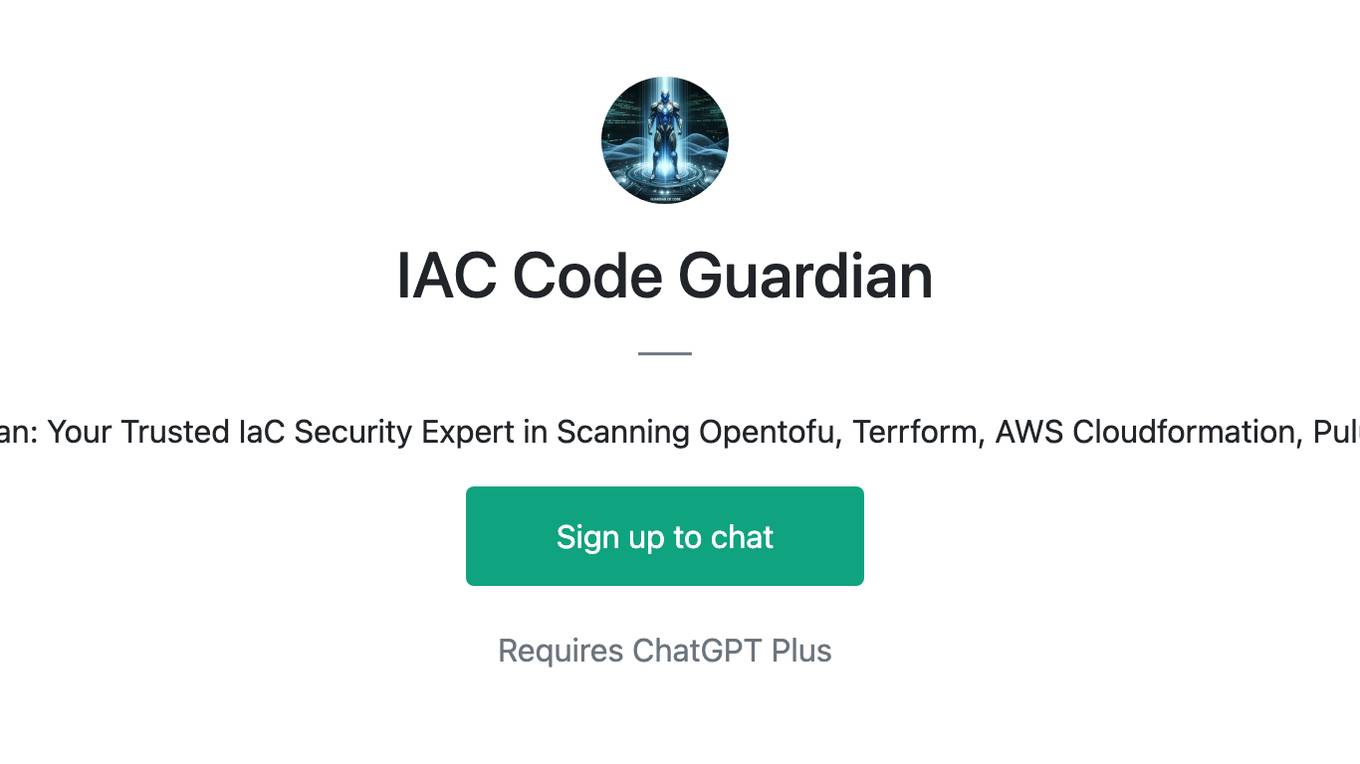
IAC Code Guardian
Introducing IAC Code Guardian: Your Trusted IaC Security Expert in Scanning Opentofu, Terrform, AWS Cloudformation, Pulumi, K8s Yaml & Dockerfile

Boundary Coach
Boundary Coach is now fine-tuned and ready for use! It's an advanced guide for assertive boundary setting, offering nuanced advice, practical tips, and interactive exercises. It will provide tailored guidance, avoiding medical or legal advice and suggesting professional help when needed.

Term of Service Drafting Master
Legal Expert in drafting Term of Service (Powered by LegalNow ai.legalnow.xyz)
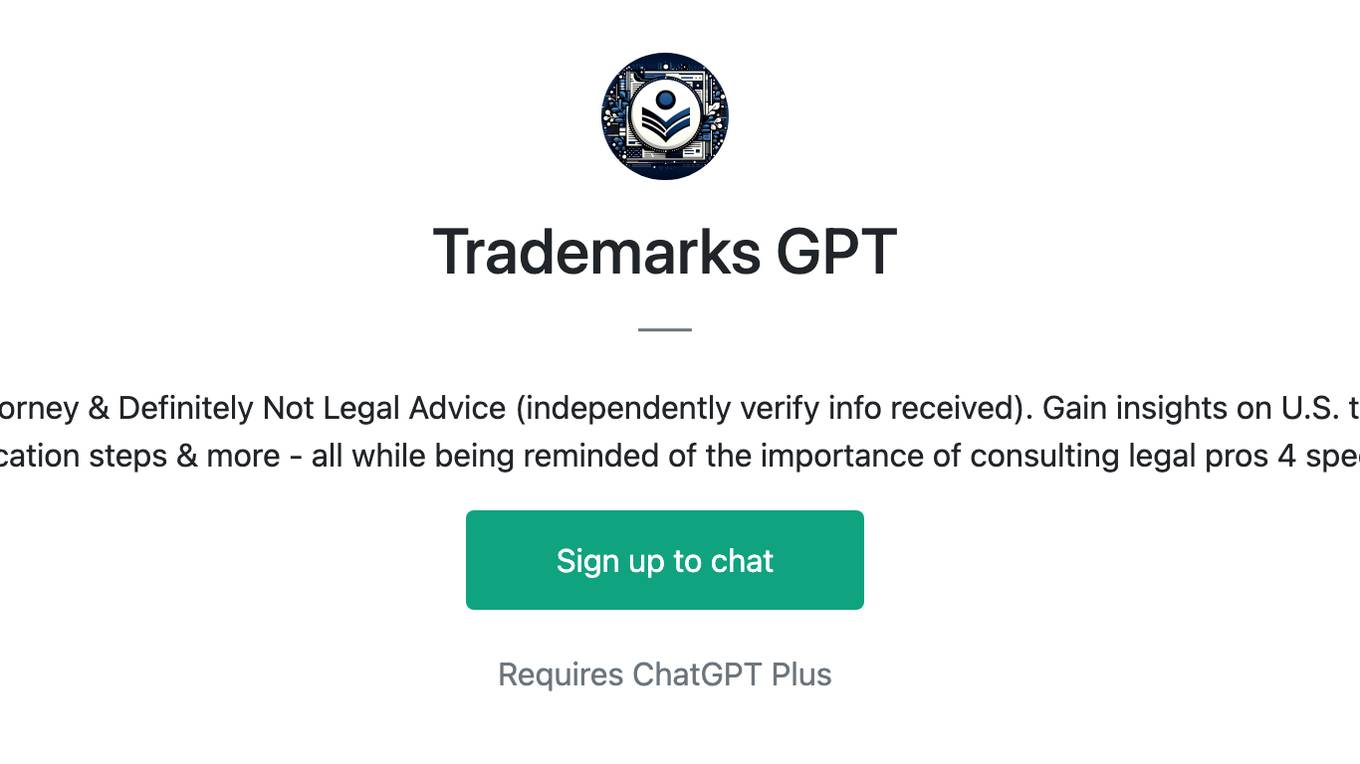
Trademarks GPT
Trademark Process Assistant, Not an Attorney & Definitely Not Legal Advice (independently verify info received). Gain insights on U.S. trademark process & concepts, USPTO resources, application steps & more - all while being reminded of the importance of consulting legal pros 4 specific guidance.

Seabiscuit IP Guardian
Secure Your Intellectual Property Innovations: Specializes in IP creation, management, and protection, offering expert guidance in U.S. copyright, trademark, patent, and trade secret laws ensuring your intellectual property is well-protected and leveraged effectively. (v1.15)
